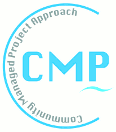COWASH kick-off, December 2011
The kick-off meeting for the “Community-led Accelerated WaSHin Ethiopia (COWASH)” project was held on 22.12.2011 in Addis Abeba Queen of Sheba Hotel. The event was honoured by the presence of nearly 50 WaSH sector representatives ranging from governmental bodies such as Ministry of Water and Energy (MoWE) and Ministry of Finance and Economic Development (MoFED) to donors including the World Bank and African Development Bank and NGOs such as the COWASH project partner IRC International Water and Sanitation Centre, WaterAid Ethiopia, Plan Ethiopia and RiPPLE. The meeting was organized in order to make WaSH sector stakeholders aware of the COWASH project’s objectives, outputs and operating principles as well as to open a forum to discuss COWASH’s role in Ethiopia’s WaSH sector development. The meeting was well documented in the mass media, thus sharing information on Ethiopia’s WaSH sector development to a wider audience.
The official opening was conducted by the H.E. Kebede Gerba, the State Minister of Water and Energy. Further opening notes followed by Tilahun Tadesse, Director of the Bi-lateral Cooperation Directorate in the MoFED, His Excellency Leo Olasvirta, the Ambassador of Finland and Mr. Paul Deverill, the WaSH Chief of UNICEF. H.E. Kebede Gerba stated in his opening speech that the Community Managed Project (CMP) approach is an innovative and successfully tested modality for rural water supply. CMP is included in the national WaSH Implementation Framework (WIF) and the opinion of the MoWE is that all rural water supply projects should preferably be implemented by using the CMP approach. The COWASH project has been established in the Ministry of Water and Energy with the support from the Government of Finland to accelerate the CMP implementation in Ethiopia.
COWASH project’s Chief Technical Advisor Mr. Arto Suominen briefly introduced the CMP approach and the challenges and benefits related to it. The vision of implementing all rural WaSH programs through CMP modality and moving towards One Rural WaSH Program was introduced. Currently there are 65 CMP districts out of which 17 are being supported by UNICEF. So far regional governments have allocated 147 million ETB for CMP implementation (Amhara 103 METB for 2004-2006 EFY, SNNPR 16,5 METB, Tigray 18,6 METB and Oromiya 9 METB for 2004 EFY). However, more funding is still expected from the regions. It was furthermore announced that a grant of 11 MEUR additional financing has been allocated to COWASH from the Government of Finland. The increased funding will double the Finnish contribution to 22 MEUR, expand the project life from three to five years and ensure the resources to support integrated, holistic community-based WaSH in rural Ethiopia.
The COWASH team answered audience’s questions related to the risks and benefits of MFI utilization, integrating hygiene and sanitation into the CMP approach and utilizing the CMP also with higher level technologies. COWASH invited all the WaSH sector stakeholders to participate in the CMP development and research by providing finance, by contributing to capacity building, by innovating variations of CMP and most importantly by aligning to the developed systems and mechanisms. Furthermore, COWASH wished for support and courage from the stakehoders to start CMP implementation. The kick-off meeting was closed by H.E. Kebede Gerba. He emphasized that the current WaSH situation in Ethiopia can be changed for better and that the low service levels have to be improved. He further expressed the high potential of the CMP approach to attract more funding for the rural WaSH development in Ethiopia. The financial absorption capacity being low, communities have to be capacitated to implement their own projects with fast speed. It was concluded that the good momentum the WaSH sector has at the moment should not be lost. “We need to work hard and fast to reach the targets!”

